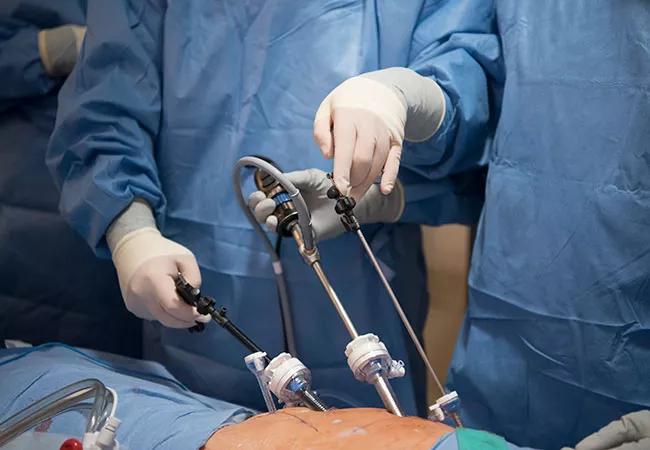What we’ve learned from 80 Cleveland Clinic patients with a first renal allograft that functioned more than 30 years

Of the 876 primary kidney transplants performed at Cleveland Clinic from 1963 through 1984, 80 functioned for three decades or longer — 12 for more than four decades. In July 2020, the recipient with the longest functioning transplant of the 80 died at age 72. The transplanted kidney, donated by the recipient’s mother, had functioned for 52.2 years and had an age of 98.3 years.
Advertisement
Cleveland Clinic is a non-profit academic medical center. Advertising on our site helps support our mission. We do not endorse non-Cleveland Clinic products or services. Policy
“The success of these 80 cases isn’t due to any single factor,” says William E. Braun, MD, a nephrologist who joined Cleveland Clinic in 1968, retired from active practice in 2010 and continued clinical research through 2020. “We have reported on many aspects of our long-term patients since 1968, including a study of 20-year successes published in Transplantation in 1995 and other articles before and after that. Now these 30-47-year outcomes provide even more interesting data that eventually could be compared with current transplant results.”
Dr. Braun and a research team recently published a review of the 80 patients in Clinical Transplantation. Their study chronicles the cases and their outcomes, evaluates special clinical subsets, and details complications, both conventional ones and others previously unreported. The exceptionally long success of these patients allowed the team to identify the evolution of new clinical findings.
“Beginning just a few years after the nation’s first kidney allograft transplant program at Peter Bent Brigham Hospital in Boston, Cleveland Clinic’s kidney transplant program represented a very early, highly skilled, remarkably extensive and steadily progressive multidisciplinary achievement,” says Dr. Braun, who trained in transplant nephrology at Peter Bent Brigham Hospital from 1965 to 1968.
The 80 primary transplant pairs in Cleveland Clinic’s long-term study had an average recipient age of 27.0 ± 9.5 years and donor age of 33.1 ± 12.0 years. Sixty-one of the 80 grafts (76.3%) came from living-related donors (34 [55.7%] two-haplotype-matched, 24 [39.3%] one-haplotype-matched, three [4.9%] no-haplotype-matched); 19 (23.8%) came from deceased donors.
Advertisement
During the 22-year span when these transplants were done, recipients were treated with three different immunosuppression programs:
Long-term treatment included maintenance prednisone and azathioprine or mycophenolate mofetil much later, and often the antiplatelet medication dipyridamole for more than 25 years.
At 35 years:
A closer look at the data in patient subsets showed that:
Advertisement
According to Dr. Braun, three remarkable and instructive patient “saves” included:
In addition, long-term data revealed these notable new findings:
Advertisement
“The patients in this study had remarkable achievements after their first renal transplants, even in the very early years,” says Dr. Braun. “Over 70% of the 38 patients who provided data worked for 20 years or longer post-transplant, including in medical and legal professions. Some went on to earn additional college degrees. Many got married; 17 became parents. They were compliant with treatments and enjoyed a good quality of life.”
Results from these long-term patients can be used to evaluate outcomes of kidney transplant recipients from the cyclosporine era, the continuing tacrolimus/mycophenolate mofetil era, and other protocols still to come, he notes.
“Hopefully this study provides clinicians with additional insights for monitoring the course of their patients and offers patients greater hope for truly long-term success with their first transplant,” concludes Dr. Braun.
Advertisement
Advertisement

Pediatric urologists lead quality improvement initiative, author systemwide guideline

Fixed-dose single-pill combinations and future therapies

Reproductive urologists publish a contemporary review to guide practice

Two recent cases show favorable pain and cosmesis outcomes

Meta-analysis assesses outcomes in adolescent age vs. mid-adulthood

Proteinuria reduction remains the most important treatment target.

IgA nephropathy is a relatively common autoimmune glomerular disease that can be diagnosed only by biopsy

Oncologic and functional outcomes are promising, but selection is key